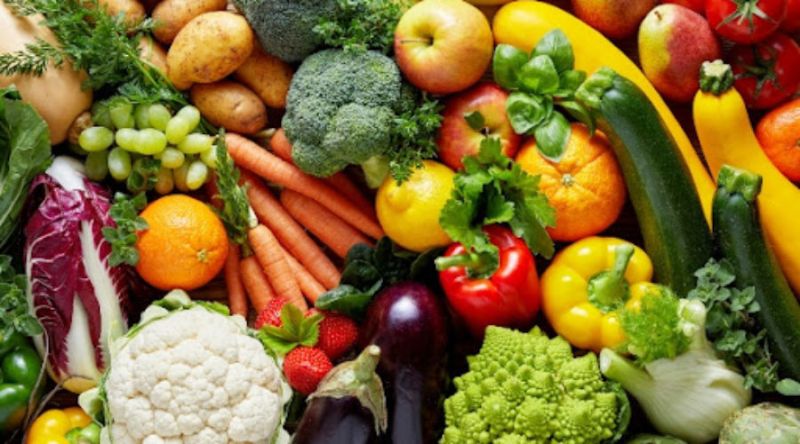
We often hear how important it is to eat carrots for healthy vision. Is there any truth to the fact that these orange vegetables can affect your eyesight?
Yes, your dietary choices can impact your vision and overall health. Eating the right ingredients is vital to get the necessary vitamins and nutrients that are needed in your body.
Keep in mind that most types of vision loss or refractive errors are irreversible. This means that if you are already experiencing vision issues, then changing your diet won’t likely have much of an effect to restore your eyesight.
But some eye conditions can respond to dietary changes at times, such as macular degeneration. So diet alone isn’t enough to improve your eyesight – which is why your doctor will recommend a full-scope plan for your vision, including medical treatments and lifestyle changes.
Also, dietary changes can have a positive effect on reducing the risk of vision complications in the future. Whether you have excellent eyesight right now or you are starting to experience vision loss, consider changing your diet as a proactive way to preserve your vision.
If there are vitamin deficiencies in the body, then it can have a negative effect on eyesight. This is because your eyes need a balance of various nutrients to support the delicate tissues and functions that happen within the eye.
Here is an overview of the nutrients that are affecting your vision, as well as the foods you can eat to increase these vitamins:
The reason carrots are known as good food for visual health is because they are a great source of vitamin A. This essential nutrient is necessary for your vision.
“Vitamin A” is actually a broad term that encompasses many compounds, known as retinoids. When you are consuming certain foods, the body derives vitamin A, and the retinal is taken up into the cells to promote good health.
For example, retinal cells take in retinol, then create rhodopsin – a pigment that affects low light vision. If you are deficient in Vitamin A, then you might develop issues with night vision.
Eat these foods to increase your vitamin A consumption:
Metabolic processes are happening within the body throughout the day. These processes can produce byproducts known as free radicals, which can cause oxidative stress. An increase in free radical activity contributes to many symptoms of aging, including the formation of cataracts.
Consuming vitamin C is an excellent way to counteract free radical activity. This antioxidant has a powerful effect on “cleaning up” the oxidative stress that is happening. If you are getting enough vitamin C in your diet, it might help slow the formation of cataracts.
Also, vitamin C can help reduce the risk of macular degeneration, an age-related disease that can cause vision loss and blindness.
Boost your vitamin C by eating these foods:
Random fact: did you know that bell peppers are the highest source of vitamin C per calorie?!
Your eyesight is also affected by a few other nutrients:
In addition to adding these healthy foods to your meal plan, it’s also vital to reduce certain types of foods that can cause damage to your vision.
Many of these foods not only affect your eyes but can lead to overall inflammation and whole-body health issues.
Eliminating these foods can help reduce the risk of heart disease and diabetes, which are both chronic conditions that can damage your eyesight.
Avoid these foods to protect your vision:
Since these foods increase the risk of heart disease and diabetes, avoiding them can be a good way to protect your overall health while minimizing the risk of developing serious eye diseases.
If you are trying to improve a nutrient deficiency, should you add certain ingredients to your diet or start using supplements?
The best solution is to talk to your doctor for personal recommendations. Whole food sources are ideal because they also contain other nutritional benefits that you can enjoy. For example, if you eat carrots to boost vitamin A, then you are also consuming potassium, fiber, biotin, vitamin K1, vitamin B6, and more.
Many supplements are considered safe when you are following the recommended dosages. But it’s not a good idea to change your supplement use without consulting with a health professional.
Also, supplements shouldn’t be used on a long-term basis. Your doctor might recommend using vitamins or supplements for a short time to correct a deficiency. Then you don’t need to take them anymore as long as you are eating a healthy diet.
The best solution is to make sure you get a variety of healthy ingredients in your regular meal plan. Then, supplements can be an additional boost as needed.
These dietary tips can protect your vision, especially when you are meeting with an eye doctor regularly. A comprehensive eye exam is important to identify potential eye issues in the earliest stages. Then we can provide personalized treatment recommendations to protect your vision.
For more information, talk to our team at EyesNY. We are here to serve the community and provide multiple locations for your convenience. Call to book an appointment.
Malta
658 Malta Ave., Ste 101
Malta, NY 12020
Phone: (518) 580-0553
Saratoga Springs
414 Maple Ave Ste 200
Saratoga Springs, NY 12866
Phone: (518) 580-0553
Clifton Park
1712 U.S. 9
Clifton Park, NY 12065
Phone: (518) 580-0553
Queensbury
535 Bay Road
Queensbury, NY 12804
Phone: (518) 580-0553
Troy
2200 Burdett Street Ste 206
Troy, NY 12180
Phone: (518) 580-0553
